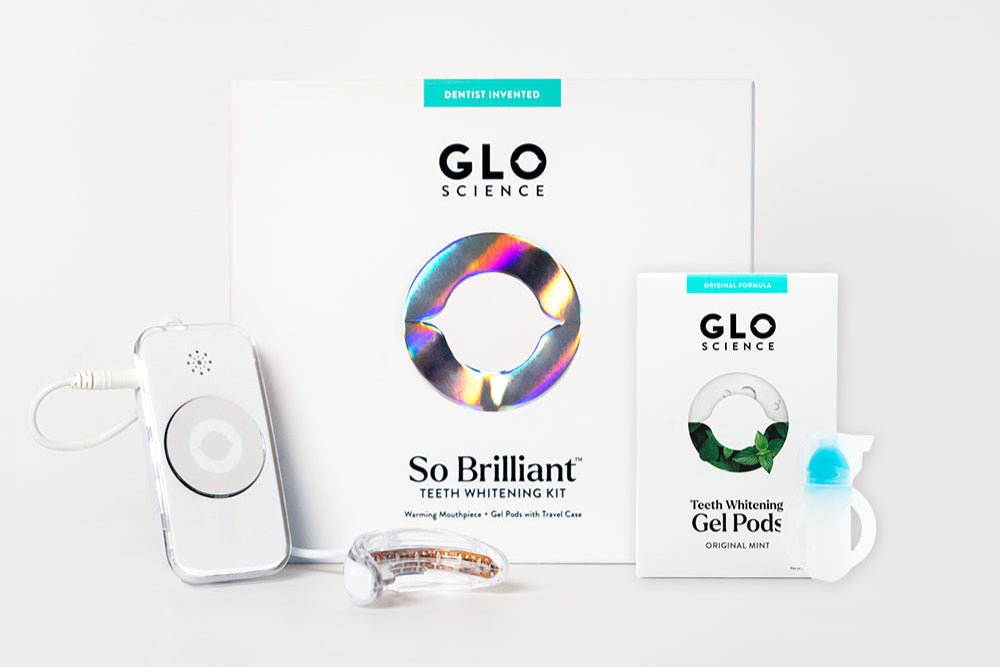Article: How to Remove Tartar From Teeth at Home

How to Remove Tartar From Teeth at Home
Ever noticed a yellow or brownish film clinging to your teeth? No matter how hard you brush, it just doesn’t go away. That’s tartar, a mineral deposit that can give your teeth a less-than-perfect appearance. A visit to the dentist is the gold standard to get rid of tartar, but is there a way to remove tartar from teeth at home naturally and keep your teeth looking clean and healthy?
First, let’s find out what is tartar and how it forms.
What is Tartar?
Tartar, or dental calculus, is a hardened form of plaque. Plaque is a soft, sticky film of bacteria that continuously forms on your teeth after drinking or eating foods that react with bacteria in your mouth. When plaque isn’t properly removed through regular brushing and flossing, it hardens and becomes tartar. Once tartar forms, it’s much harder to eliminate without professional dental tools.
Tartar often appears along the gumline and can cause tooth discoloration, bad breath, and gum inflammation (gingivitis), the first stage of gum disease. Worse yet, its rough surface provides a breeding ground for even more plaque and bacteria. This makes it essential to tackle tartar as soon as possible to keep your smile in top shape.
5 Natural Remedies to Remove Tartar From Teeth at Home
DIY remedies to remove tartar at home can’t replace professional cleanings done at your dentist. Yet, they can be effective in preventing and minimizing tartar buildup. Here are 5 tried-and-true solutions to get rid of tartar on teeth at home:
1. Baking Soda
Baking soda, also known as sodium bicarbonate, is a proven remedy for removing plaque and softening tartar. The fine particles gently scrub the surface of your teeth, helping to break down tartar and make it easier to remove. Additionally, its alkaline nature neutralizes the acids in the plaque and prevents it from hardening into tartar.
To use baking soda, mix a small amount of water to form a paste, and brush your teeth with it for two minutes. This method not only helps with tartar removal but also neutralizes acids in the mouth, reducing the risk of decay and discoloration.
2. White Vinegar or Apple Cider Vinegar
White vinegar or apple cider vinegar are known for their antibacterial properties. They can demineralize and soften hardened plaque, making it easier to remove.
To apply this remedy, mix a tablespoon of vinegar with a glass of warm water and a pinch of salt. Gargle the mixture for a couple of minutes before spitting it out. This simple rinse can be done a few times a week to help manage tartar and maintain oral health. However, do not use this remedy if you have any open wounds or ulcers in your mouth.
3. Oil Pulling With Coconut Oil
Oil pulling is an ancient Ayurvedic practice that involves swishing oil in your mouth to remove toxins and bacteria. Coconut oil, in particular, has natural antioxidant and antibacterial properties that can help fight plaque buildup and prevent tartar from hardening.
To try oil pulling, swish a tablespoon of coconut oil around your mouth for 10 minutes or, as long as you can, up to 20 minutes before spitting it out. Always remember to rinse your mouth with water afterward and brush your teeth as usual. Regular oil pulling can reduce bacteria, plaque, and gum inflammation.
4. Aloe Vera
Aloe vera also has antibacterial properties. It fights the bacteria responsible for plaque formation and removes tartar buildup. It’s also known for its soothing effect, which is beneficial for the gum inflammation often associated with plaque and tartar accumulation.
Mix the aloe vera gel with 5 tablespoons baking soda and 4 tablespoons glycerine in a cup of water and swish around your mouth for a few minutes.
5. Orange Peels
Orange peels are a surprising yet effective natural remedy for tartar removal. The vitamin C, known as ascorbic acid, is generally necessary for oral health, especially for the gums, reducing inflammation. Moreover, its acidity and antibacterial effect help break down plaque and tartar while brightening the teeth.
Rub the inside of an orange peel directly onto your teeth for a few minutes. You can also make a paste by blending the peel with a small amount of water and applying it with a toothbrush.
Daily Practices to Prevent Tartar Buildup
Adopting these daily habits can help you prevent tartar buildup in the first place:
Proper Brushing Techniques
Brushing your teeth twice a day is the foundation of good oral hygiene, but technique matters just as much as frequency. Use a soft-bristled toothbrush and brush at a 45-degree angle to the gums. Short, gentle strokes are more effective than aggressive scrubbing, which can wear down enamel and irritate gums.
The Role of Flossing and Water Flossers
While brushing is essential, flossing is the only way to reach the tight spaces between your teeth where plaque loves to hide. Daily flossing prevents plaque from turning into tartar in those hard-to-reach areas.
If traditional flossing is difficult, consider using a water flosser. This device uses a high-pressure stream of water to clean between teeth and along the gumline, making it an excellent alternative for tartar prevention.
How Long Does It Take to Remove Tartar from Teeth?
The time it takes to remove tartar depends on its severity and the consistency of your home care routine. Regular brushing, flossing, and using natural remedies can help gradually reduce tartar over several weeks. However, for advanced cases where tartar deposits are more severe, professional dental cleanings may be necessary to completely eliminate hardened tartar.
Safety and Risks of at-Home Tartar Removal Methods
While natural remedies can be an effective and easy way to remove tartar from teeth, it’s important to use them in moderation. Overusing abrasive substances like baking soda or acidic solutions like vinegar can erode enamel and irritate gums. Always follow recommended usage guidelines and balance these remedies with regular dental check-ups to ensure your oral health is on track.
In summary, the best way to prevent tartar buildup is to maintain good oral hygiene and see your dentist for regular checkups. By following these tips, you can enjoy a healthier smile and reduce your risk of gum disease and tooth decay.






